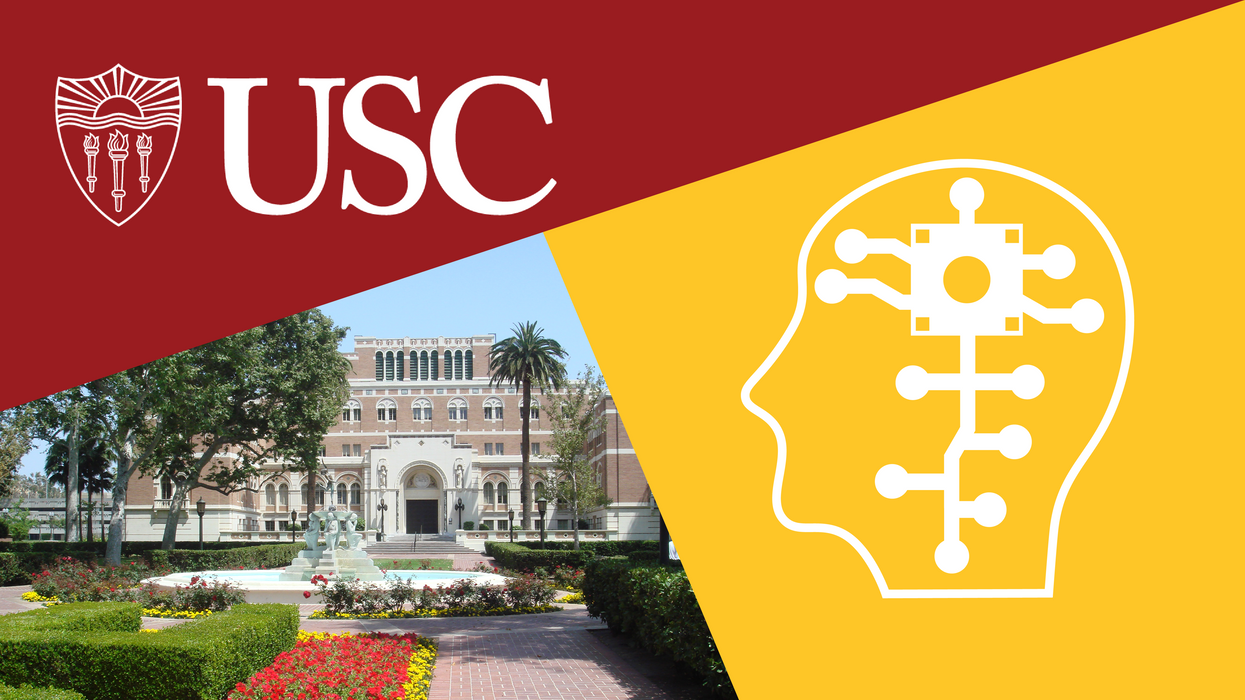Why USC Invested $1 Billion into Teaching Students About AI and Quantum Computing
Samson Amore is a reporter for dot.LA. He holds a degree in journalism from Emerson College. Send tips or pitches to samsonamore@dot.la and find him on Twitter @Samsonamore.

This is the web version of dot.LA’s daily newsletter. Sign up to get the latest news on Southern California’s tech, startup and venture capital scene.
The University of Southern California is keen to begin teaching more students how to responsibly handle artificial intelligence and machine learning, and it just invested $1 billion to expand its curriculum to provide more courses to students both majoring in computer science and interested in learning the basics.
Spearheaded by USC President Carol Folt, the “Frontiers of Computing” initiative and new funding builds on a previous $260 million gift from the Lord Foundation of California that the university received in 2019.
“We like to revolutionize all our curricula, both in engineering as well as outside of engineering, to make sure that our students as they graduate are in full command of all these technologies,” said Yannis Yortsos, dean of USC’s Viterbi School of Engineering.
The specific problems USC’s new school of computing seeks to address are further developing AI and machine learning software, expanding quantum computing capabilities and improving the efficiency and scalability of hardware that underpins this tech.
Part of the funding will add a new School of Advanced Computing to USC’s campus, which will teach students about artificial intelligence, blockchain, data science, machine learning and quantum computing. The new school will also be a hub for research and development in these areas, as well as discussion about how to use these tools ethically.
“Computer science, data sciences and AI have become essentially an extension of the original fundamentals,” Yortsos told dot.LA. “We would like to teach these fundamentals the same way that we teach mathematics. We also like to emphasize the fact that we like our students to understand the ethical consequences of technology, and we want to make sure that our students understand that it's not about technical corporate competence only. It's also the development of trustworthiness.”
The 116,000-square-foot building won’t open until 2024 and is still under construction. When it’s done the entire computer science department will be housed at the new hall.
The new curriculum will benefit “not only engineering students but at the same time students from business or from other [majors] as well, so that's unique about this particular initiative,” Yortsos said.
The new funding will also bolster USC’s footprint in the local economy. Its Viterbi School of Engineering Information Sciences Institute campus is based in Marina del Rey, while the school’s Institute for Creative Technologies – which focuses on mixed reality, body computing and medical virtual reality, among other disciplines – is based in Playa del Rey.
“We will invest a lot in the development of the technology ecosystem on the west side, where we have two major institutions,” Yortsos added.
In 2021, the National Science Foundation reported that over 42% of all higher education degrees statewide are in the fields of science and engineering. Overall, the federal grant administrator pumped over $193.4 million into the state’s STEM education programs in 2022.
USC was the sixth-highest university recipient of NSF funds in California last year after UCLA, UC Berkeley, UC San Diego, UC Irvine and UC Davis. The private university received 84 grants from the NSF out of more than 260 proposals from the university (to get most grants, colleges have to apply).
This is all to say that USC’s investment reflects a growing, widespread focus on investing more in public and private universities that teach computer science skills to a new generation of workers. In total, USC said it expects to award 1,733 computer science degrees to both undergraduates and graduate students this year, up from 1,400 two years ago.
Samson Amore is a reporter for dot.LA. He holds a degree in journalism from Emerson College. Send tips or pitches to samsonamore@dot.la and find him on Twitter @Samsonamore.






 Image Source: Tinder
Image Source: Tinder Image Source: Apple
Image Source: Apple